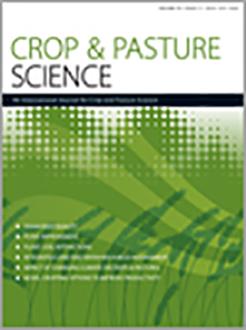Soil salinisation and overgrazing are two important factors limiting plant growth in the Songnen Grassland, Northeast China. Leymus chinensis, a dominant rhizomatous grass, resists grazing and tolerates saline–alkali stress. However, its adaptive mechanisms to the dual effects of grazing and saline–alkali stress remain largely unknown. A two-factorial field experiment was conducted in two consecutive years in the natural L. chinensis community, combining the addition of mixed saline–alkali solution (NaCl : NaHCO3 : Na2CO3 1 : 1 : 1, amount 559.13 g m–2 year–1) with clipping (removal of 60% of aboveground biomass, AGB). Saline–alkali addition significantly increased AGB and total biomass in the no clipping but not in the clipping treatment. Irrespective of clipping, ramet density was significantly decreased, and individual ramet biomass was significantly increased under salt stress. The significant increase in AGB was due to a high K+ : Na+ ratio, high water-use efficiency, and an increase in leaf area index and net photosynthesis rate of individual ramets under salt–alkali stress. Clipping significantly decreased AGB and total biomass regardless of saline–alkali addition, possibly because of decreased sugar content of rhizomes. Saline–alkali and clipping had an interactive effect on AGB and total biomass of L. chinensis. The significant reduction in AGB and total biomass were mainly caused by reduced proline and water-soluble carbohydrate content under dual stress. A modified and simplified graphic model of the limiting resource model was proposed based on our results. Leymus chinensis can grow well under saline–alkali stress via ramet biomass compensation, in which the significant decrease in ramet density is compensated by the significant increase in individual ramet biomass. Ramet compensation and clonal integration were identified to be main mechanisms of herbivory and saline–alkali tolerance.
How to translate text using browser tools
29 November 2019
The clonal grass Leymus chinensis overcomes salt stress by over-compensatory growth of individual ramets
Congcong Zheng,
Huimin Ma,
Yingzhi Gao,
Hao Sun,
Haijun Yang,
Carol C. Baskin
ACCESS THE FULL ARTICLE

Crop and Pasture Science
Vol. 70 • No. 11
November 2019
Vol. 70 • No. 11
November 2019
carbon limitation
clonal grass
compensatory growth





